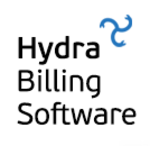Description

OfficeTools

Smart Workshop
Comprehensive Overview: OfficeTools vs Smart Workshop
OfficeTools and Smart Workshop are both software solutions designed to streamline processes and improve efficiency within their respective target markets. Let's break down each of them in more detail:
a) Primary Functions and Target Markets
OfficeTools: OfficeTools is primarily an accounting practice management software, aiming to integrate various functions necessary for running a smooth accounting or tax practice.
-
Primary Functions:
- Client and contact management
- Document management and storage
- Time tracking and billing
- Project management and workflow automation
- Scheduling and task management
- Integration with tax software and other financial applications
-
Target Market:
- Accounting firms
- Tax professionals
- CPA firms of all sizes
Smart Workshop: Smart Workshop is a management software focused on streamlining operations in automotive workshops. It aims to automate job assignments, enhance parts inventory management, and improve customer service.
-
Primary Functions:
- Job scheduling and job card management
- Inventory tracking and management
- Customer relationship management (CRM)
- Invoicing and payment processing
- Detailed reporting and analytics
- Integration with automotive databases and systems
-
Target Market:
- Automotive repair shops
- Service centers
- Workshops of various sizes
b) Market Share and User Base
OfficeTools:
- In the accounting sector, OfficeTools is considered one of the more comprehensive practice management solutions. However, market share specifics can vary by region and firm size. It's well-regarded among small to mid-sized accounting firms.
- The user base consists mostly of accounting and tax professionals looking for an integrated solution that combines several essential functions into one platform.
Smart Workshop:
- In the automotive repair management software market, Smart Workshop competes with other specialized software solutions. Its market share is generally smaller compared to more ubiquitous global solutions.
- The user base includes individual automotive shops and networks of repair centers focusing on improving operational efficiency.
c) Key Differentiating Factors
OfficeTools:
- Integration Capabilities: Strong integration with other accounting and financial software makes OfficeTools a preferred choice for firms already using popular tax software suites.
- All-in-One Solution: It combines multiple functions like project management, billing, and document storage into one, which reduces the need for multiple separate tools.
- Customization and User Interface: Known for being user-friendly with adaptable features that can be customized to individual firm needs.
Smart Workshop:
- Specificity to Automotive Needs: Tailored functionalities for the automotive industry (such as inventory management related to parts) make it highly relevant for workshop operations.
- Operational Efficiency: Emphasis on streamlining shop floor jobs, optimizing schedules, and reducing downtime.
- Customer Focus: CRM features are designed to enhance customer engagement and retention through better service tracking and communication.
Both products cater to niche markets, with OfficeTools focusing on financial and accounting firms and Smart Workshop addressing the needs of automotive repair businesses. Their differentiation largely stems from their tailored functionalities developed for industry-specific processes.
Contact Info

Year founded :
2016
Not Available
Not Available
Denmark
http://www.linkedin.com/company/officetools

Year founded :
Not Available
Not Available
Not Available
Not Available
Not Available
Feature Similarity Breakdown: OfficeTools, Smart Workshop
OfficeTools and Smart Workshop are both software solutions designed for productivity and efficiency in professional environments, but they each serve different markets and have unique characteristics. Here's a breakdown of their feature similarities and differences:
a) Core Features in Common
-
Project Management:
- Both offer project management capabilities, enabling users to create, assign, and track tasks and deadlines.
-
Time Tracking:
- Time tracking features are present in both products, allowing users to log hours spent on various tasks or projects.
-
Document Management:
- Each platform provides tools for organizing, storing, and retrieving documents. This includes support for common file formats and integration with other storage services.
-
Collaboration Tools:
- Both software solutions include features that facilitate team collaboration, such as shared workspaces, comments, and notifications.
-
Reporting and Analytics:
- They offer reporting features, allowing users to generate insights from their data, be it time tracking, project progression, or resource allocation.
b) User Interface Comparison
- OfficeTools:
- Typically features a more traditional and professional interface tailored towards accounting and financial services firms. The design is more conservative, focusing on functionality and efficiency with a rich feature set viewable from a centralized dashboard.
- Smart Workshop:
- Aims for a more modern and flexible UI, often appealing to creative and technical teams. Its interface is generally more visual and intuitive, focusing on ease of use and adaptability with customizable layout options.
c) Unique Features
-
OfficeTools:
- Integrated Practice Management: Specializes in comprehensive practice management for accounting firms, including CRM specifically designed for tax and accounting professionals.
- Client Portal: Offers a secure portal for clients to interact directly with the firm, facilitating document exchanges and communication.
- Billing and Invoicing: Built-in features for managing billing cycles, generating invoices, and tracking payments tailored for service-based billing.
-
Smart Workshop:
- Resource Scheduling and Management: Unique features tailored for workshops and creative teams needing to manage physical and digital resources.
- Visualization Tools: Offers advanced graphical tools for project visualization, flowchart creation, and enhanced timeline views.
- Custom Workflow Automation: Provides a range of automation options to streamline repetitive tasks across complex workflows, often customizable to fit specific industry needs.
Conclusion
While both OfficeTools and Smart Workshop offer overlapping functionality in project management and collaboration, they cater to distinct audiences and industries. OfficeTools excels in accounting practice management, while Smart Workshop offers versatility suited to more diverse or creative environments with unique visualization and resource management features.
Features

Document Management
Client Collaboration
Reporting
Task Management
Time Tracking

User-Friendly Interface
Collaboration Tools
Comprehensive Reporting
Efficient Task Management
Best Fit Use Cases: OfficeTools, Smart Workshop
OfficeTools and Smart Workshop serve distinct purposes and target different audiences, making them suitable for various business types, projects, and industry needs. Below is a breakdown of their best-fit use cases:
OfficeTools
a) Best Fit for OfficeTools:
-
Accounting Firms and CPA Practices:
- OfficeTools is specifically designed to cater to accounting firms seeking a comprehensive practice management solution. Its features like time and billing management, document management, and client communications are tailored for CPAs.
-
Small to Mid-sized Professional Services:
- Small to mid-sized businesses that offer services like legal, consulting, or financial advisory can also benefit from OfficeTools. Its integrated suite helps streamline operations such as scheduling, billing, and client management.
-
Project-Based Businesses:
- Businesses that manage client projects on a frequent basis would find OfficeTools useful because of its client-focused management capabilities and ability to handle multiple tasks within the project lifecycle.
-
Remote and Hybrid Work Environments:
- Firms that have shifted to remote or hybrid working models can leverage the cloud-based features of OfficeTools to ensure seamless communication and collaboration among distributed teams.
Smart Workshop
b) Best Fit for Smart Workshop:
-
Manufacturing and Engineering Workshops:
- Smart Workshop is well-suited for scenarios involving manufacturing or engineering workshops where there is a need for tools to manage production schedules, inventory, and equipment maintenance.
-
Construction and Fabrication Projects:
- Construction companies and fabrication shops benefit from Smart Workshop's ability to manage workflow processes, track resources, and ensure optimal project management.
-
Custom Production Operations:
- Businesses engaged in custom or small-batch production operations would find Smart Workshop advantageous for its focus on tailor-made workflow management solutions and real-time production monitoring.
-
Industry 4.0 and IoT-oriented Workshops:
- Workshops looking to integrate IoT and Industry 4.0 solutions in their operations would find Smart Workshop's technological capabilities in managing smart devices and integrated systems highly beneficial.
Catering to Industry Verticals and Company Sizes
OfficeTools:
- Industry Verticals: Primarily focuses on accounting/legal/consulting verticals where client management and document handling are critical.
- Company Sizes: Best suited for small to mid-sized companies due to its specialization in practice management and client communication. Scalable enough for growing firms, providing the needed tools as the firm's complexity increases.
Smart Workshop:
- Industry Verticals: Targets the manufacturing, engineering, and construction sectors where project tracking, resource allocation, and production workflows are key.
- Company Sizes: Serves a broader range of companies from small workshops to large-scale factories. The adaptability and integration with modern technology make it suitable for businesses aiming to scale operations or adopt advanced manufacturing practices.
In summary, OfficeTools excels in administratively heavy, professional service environments, while Smart Workshop is geared towards hands-on, production-focused industries, each tool offering distinct benefits apt for their respective sectors and company sizes.
Pricing

Pricing Not Available

Pricing Not Available
Metrics History
Metrics History
Comparing undefined across companies
Conclusion & Final Verdict: OfficeTools vs Smart Workshop
To provide a final verdict on OfficeTools and Smart Workshop, I'll need to analyze and compare both products on various critical factors that generally affect users’ decisions, such as price, ease of use, features, customer support, and scalability. Here's a structured assessment:
a) Best Overall Value
OfficeTools generally offers the best overall value for users who prioritize comprehensive features and integration within an accounting or professional services firm. Its suite of functionalities, such as time tracking, billing, document management, and client portals, provide a robust environment that streamlines operations efficiently.
b) Pros and Cons
OfficeTools:
-
Pros:
- Comprehensive Features: Offers a wide range of features designed to meet the needs of accounting firms, including time and billing, document management, and firm management.
- Integration Capabilities: Can be integrated with popular accounting software like QuickBooks, enhancing its utility.
- Scalability: Suitable for firms of various sizes, from small to medium enterprises, allowing for growth.
-
Cons:
- Learning Curve: Some users find the software complex and require training to utilize it fully.
- Price: It might be on the higher end for smaller firms looking for simple solutions.
Smart Workshop:
-
Pros:
- User-Friendly Interface: Known for its ease of use, allowing for quick onboarding and minimal training.
- Focused Functionality: Great for users looking for specific workshop and task management tools with straightforward operations.
-
Cons:
- Limited Features: Compared to OfficeTools, it may lack some advanced functionalities needed by larger firms.
- Integration Limitations: Might not integrate seamlessly with other accounting systems compared to OfficeTools.
c) Recommendations for Users
-
For Larger Firms: OfficeTools is likely the better choice due to its extensive feature set and the ability to handle complex demands of bigger firms. Its scalability and integration abilities make it a strong candidate for those requiring a comprehensive management solution.
-
For Smaller Firms or Workshops: Smart Workshop might be more appealing due to its simplicity and focus on essential workshop and task management tasks. It is particularly suitable for those who do not need the extensive features of OfficeTools.
-
For Users Needing Quick Deployment: If ease of use and rapid deployment are top priorities, Smart Workshop could be the more attractive option. OfficeTools might require a more considerable time investment initially for training purposes.
-
Budget Considerations: If budget constraints are significant, users should conduct a detailed cost-benefit analysis to determine if the advanced features of OfficeTools justify the expense compared to Smart Workshop's focused set of tools.
In conclusion, the choice between OfficeTools and Smart Workshop will largely depend on the specific needs and scale of the business. Larger, feature-demanding firms will benefit from OfficeTools' extensive capabilities, while smaller operations or those prioritizing simplicity and ease of use may find Smart Workshop more suited to their needs.
Add to compare
Add similar companies



